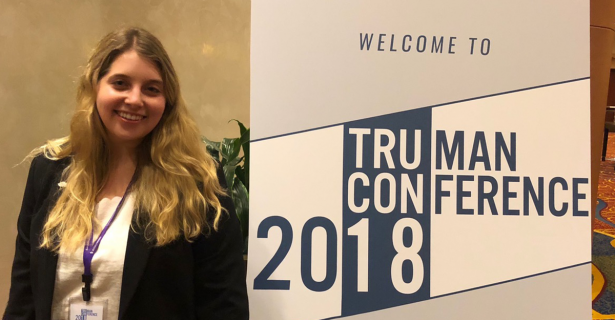This summer, as part of my IGL-funded internship with the Truman National Security Project, I had the opportunity to staff the annual Truman Conference in early June. The annual conference brings together Truman members, national security experts, and politicos to organize, train, and learn. This year, however, the conference included a small twist - there was an all-female slate of speakers. The goal was not to host a conference about women in national security, but rather to hold a conference demonstrating that a full program on issues in national security and politics can easily feature only the expertise and experience of women. TruCon proved that prioritizing representation does not in any way mean sacrificing quality.
The Importance of Inclusion
Our society that has consistently devalued the lives and dignity of groups including people of color, immigrants, the LGBTQ, and women. As a member of one of those marginalized groups, inclusion is particularly important to me. At the minimum, inclusion is “inviting and ensuring access, a safe and welcoming environment, partnership opportunities, and leadership for people of all backgrounds, communities, and identities” (Webster Dictionary).
Beyond being the right thing to do, inclusion is also a source of strength - adding new perspectives sharpens analysis and efficacy. In order to overturn historical patterns of injustice and empower all identities, one must intentionally and carefully create an environment of diversity and respect.
Organizing for Inclusion
“History has no arc unless we choose to reach out and bend it” - source redacted due to Chatham House Rules.
What identities aren’t at the table? How can you bring them to the table, and how do you allow them to craft policy or have a meaningful say in decisions?
It is important for allies to be constantly aware of power imbalances and discrimination. Even if you feel like you don’t have the power to bring people to the table, everyone needs to become comfortable with supporting their allies by saying “this person is not at the table, and we need their voice.”
Diversity vs Inclusion
There is an important distinction between diversity and inclusion. Even if someone is at the table, that doesn’t mean they are included. Don’t interrupt women, and don’t let women be interrupted. Uplift female and POC opinions by speaking up to validate them and give them
credit for their ideas. Consciously and deliberately be aware of how your actions are empowering or hindering your disadvantaged peers.
“Don’t allow yourself to be put on the back burner if you have the expertise and deserve to be at the table” - source redacted due to Chatham House Rules.
Don’t just say that you value representation. Take a lesson from Truman and put your money where your mouth is.

